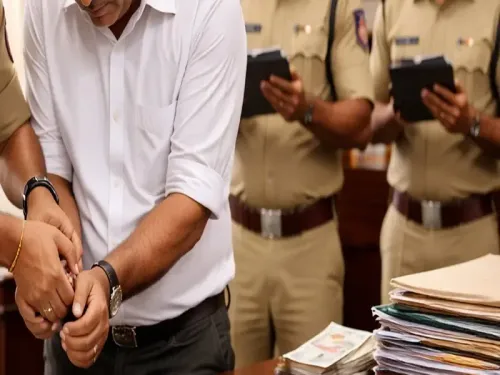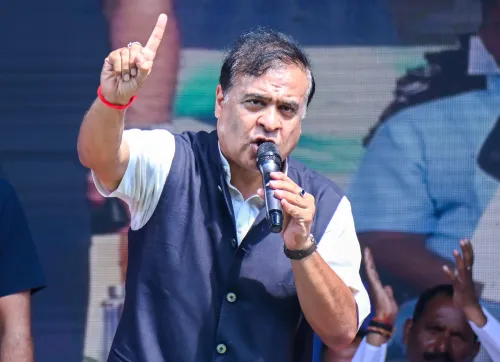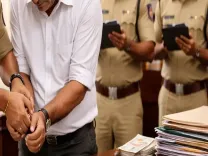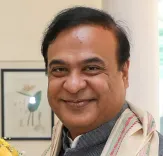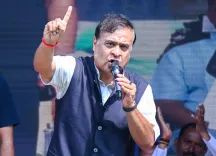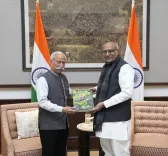Debate Over Mohammed Shami's Fasting: Clerics Divided on Roza During Ramzan

Synopsis
Key Takeaways
- Mohammed Shami's fasting decision sparks controversy.
- Opinions among clerics vary regarding fasting during Ramzan.
- Some argue fasting is obligatory, while others allow exceptions.
- Public behavior during Ramzan is under scrutiny.
- National service can also be viewed as a form of worship.
New Delhi, March 6 (NationPress) A new controversy has arisen regarding Indian cricketer Mohammed Shami's choice to abstain from fasting during the current month of Ramzan. This situation has led to a split among Muslim clerics and scholars, with some criticizing his actions while others adopt a more forgiving stance rooted in Islamic teachings.
Recently, a video surfaced on social media showing Mohammed Shami drinking water during India's semi-final match against Australia.
The backlash was initiated by Muslim cleric Ibrahim Chaudhary, who expressed his disapproval of Shami's public behavior during the holy month of Ramzan. He questioned Shami's dedication to his religious obligations, particularly the practice of fasting during this auspicious time.
Chaudhary branded Shami a 'sinner' for supposedly breaking his fast during India's semi-final clash against Australia, which took place during Ramzan.
He stressed that fasting in Ramzan is a 'farz' (mandatory) act in Islam that every Muslim must observe.
"It is crucial to adhere to all Islamic duties as commanded by Allah. If any Muslim intentionally ignores or skips these responsibilities, especially when capable of fulfilling them, they are committing a sin," stated Chaudhary.
He elaborated that Islam requires total compliance with its tenets, and success can only be achieved by embracing all its commandments.
According to Chaudhary, should Shami's actions be intentional, he risks missing out on the spiritual rewards associated with fulfilling his religious duties.
In contrast, another Muslim scholar, Maulana Qari Ishaq Gora, came to Shami's defense, offering a more measured viewpoint. Gora acknowledged that fasting during Ramzan is indeed a core obligation for Muslims but pointed out that Islam allows for exceptions under specific circumstances.
"If someone cannot fast due to unavoidable circumstances, such as being a professional athlete, Islam permits breaking the fast. The essential factor is that the reason must comply with Shariat principles," remarked Gora.
He emphasized that outsiders should not hastily judge the decision to break a fast.
"This matter lies between Allah and Shami. There is no need for anyone to act as a judge here," Gora added.
He also highlighted that if Shami's actions align with Shariat, harsh judgments should be avoided, as it is ultimately Allah who determines the outcomes of such actions.
The discussion extended beyond the religious community, with other prominent figures weighing in on the issue.
Pujya Swami Chidanand Saraswati, President of Parmarth Niketan, provided a perspective that emphasized a balance between religious commitment and national service.
"Individuals who might not observe Roza due to their circumstances still retain their faith. They may express their devotion through other means, such as their dedication to their country. This can also be considered a form of worship," he asserted.
He recognized that patriotism, commitment to one’s profession, and self-sacrifice for the nation can also be viewed as acts of devotion, equally esteemed by the divine.
"Contributing to the nation's development and sacrificing time and effort for the greater good is no less than worship. We must honor these contributions, just as we honor those who perform religious rituals," he concluded.


